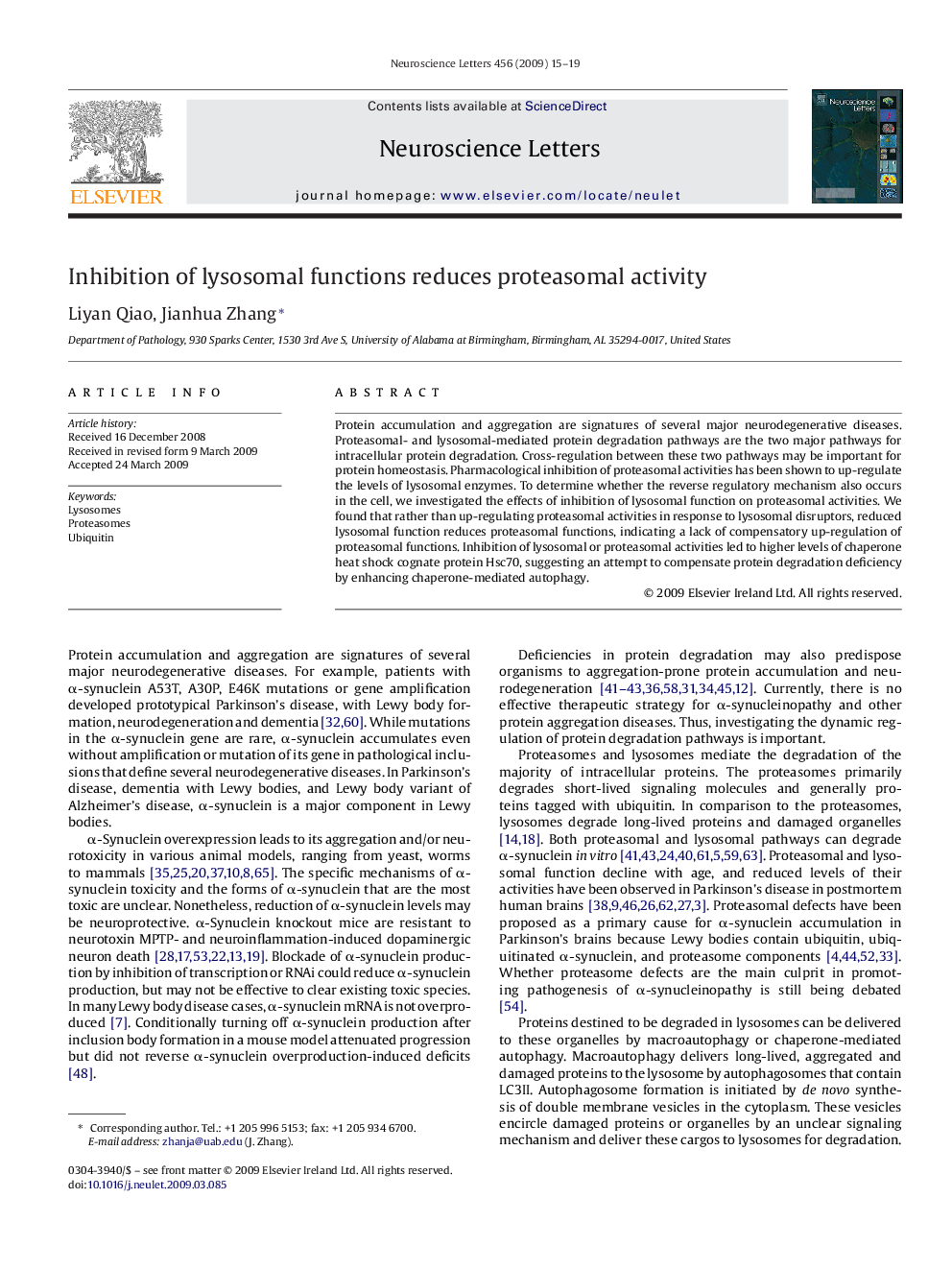| Article ID | Journal | Published Year | Pages | File Type |
|---|---|---|---|---|
| 4347229 | Neuroscience Letters | 2009 | 5 Pages |
Protein accumulation and aggregation are signatures of several major neurodegenerative diseases. Proteasomal- and lysosomal-mediated protein degradation pathways are the two major pathways for intracellular protein degradation. Cross-regulation between these two pathways may be important for protein homeostasis. Pharmacological inhibition of proteasomal activities has been shown to up-regulate the levels of lysosomal enzymes. To determine whether the reverse regulatory mechanism also occurs in the cell, we investigated the effects of inhibition of lysosomal function on proteasomal activities. We found that rather than up-regulating proteasomal activities in response to lysosomal disruptors, reduced lysosomal function reduces proteasomal functions, indicating a lack of compensatory up-regulation of proteasomal functions. Inhibition of lysosomal or proteasomal activities led to higher levels of chaperone heat shock cognate protein Hsc70, suggesting an attempt to compensate protein degradation deficiency by enhancing chaperone-mediated autophagy.
